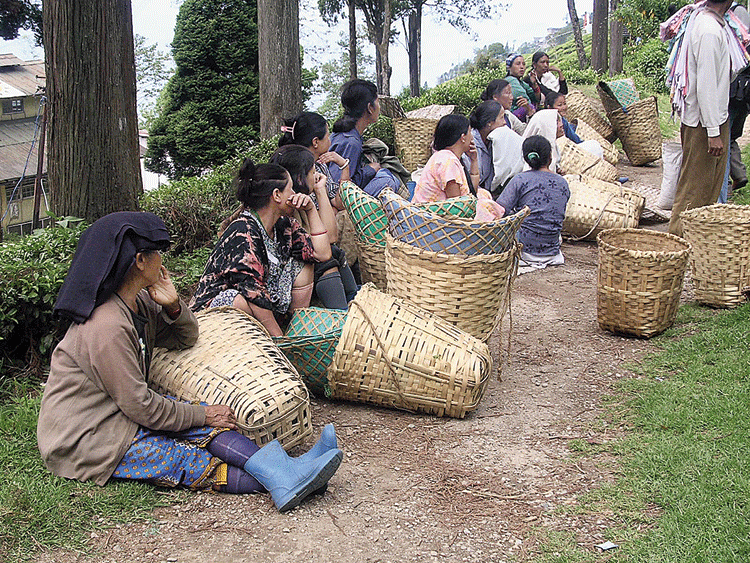All major political parties and trade unions have demanded the closure of tea gardens and payment of wages during the shutdown period to arrest the spread of Covid-19.
But the Bengal government left the decision to district magistrates who didn’t take a call till Monday evening.
GTA chief Anit Thapa has written to the Darjeeling Tea Association seeking the closure of all estates under the jurisdiction of the hill body till March 31.
The plucking of Darjeeling Tea’s premium first flush is presently underway. Labourers have to work in groups in tea plantations, which raises the chances of the spread of the novel coronavirus. Besides, the workers’ quarters are in clusters.
The Joint Forum, an umbrella form of 20-odd trade unions, also wrote to Vivek Kumar, principal secretary in the
health and family welfare department of the Bengal government, demanding that complete safety restriction measure under the West Bengal Epidemic Diseases, COVID-19 Regulations, 2020, be made applicable to tea leaves’ plucking and processing and manufacturing.
Suraj Pathak, a leader of the forum, said the unions essentially wanted the gardens to be closed and wages to be paid.
Darjeeling BJP MP Raju Bista said he had raised the issue with Union commerce and industries minister Piyush Goyal and Bengal labour minister Moloy Ghatak.
Sandeep Mukherjee, the principal advisor to the DTA, said the tea planters would go by the government’s directive.
Late in the evening, Bengal chief secretary issued an order clarifying that “in terms of para 8 of the order no H &FW/120/20 dated 22.03.2020 all district magistrates, municipal commissioners are authorised to take necessary decision (on complete closure)… they may be contacted for merit based exemption with justification”.
Sources in the tea industry said Jalpaiguri district magistrate had issued an order directing all garden managers to “take adequate measures to save the lives of those poor employees who are working in their respective area,” and follow state advisory in terms of social distancing “following attendance roster in their working place only on emergent situation”.
“They should be provided with required masks, sanitisers from their establishment and in order to maintain social distancing, roster duty among the workers are very much required to be adopted,” a planter read out from the Jalpaiguri DM’s notice.
All 170-odd bought-leaf factories (BLFs), which buy tea leaves from small growers for processing, were shut. Most of the BLFs are located in the plains of north Bengal.
“Workers serving at our units are reluctant to join duties. Also, it is not clear whether tea is an essential commodity. Further, warehouses are close and we don’t know where to stock tea. The auction is also close. Altogether, we have no other option but to close down the factories,” said Prabir Seal, president, North Bengal Tea Producers’ Association that represents the BLFs.
With the BLFs’ closure, plucking has stopped in small tea plantations.
“Teal eaves are perishable items and cannot be kept without processing. Now that the BLFs are close, we have also stopped work in our plantations. It would be a huge setback for the industry as the plucking season has just commenced,” said Bijoygopal Chakraborty, president, Confederation of Indian Small Tea Growers’ Associations.
Around 25 lakh people are said to reside in the tea gardens of north Bengal.











